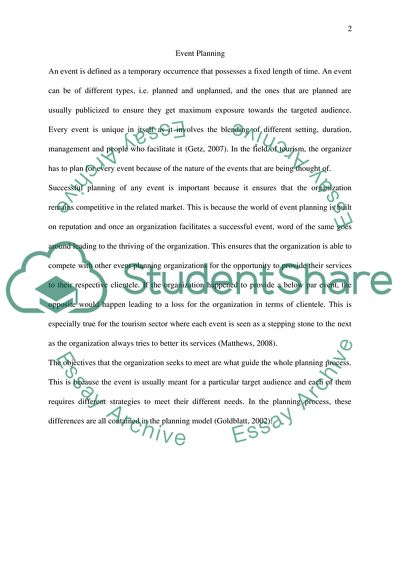Cite this document
(“Event Planning in Tourism Essay Example | Topics and Well Written Essays - 2750 words”, n.d.)
Retrieved from https://studentshare.org/tourism/1619874-produce-a-written-essay-consisting-of-a-detailed-analysis-of-the-evet-planning-process-specific-to-an-event-case-study
Retrieved from https://studentshare.org/tourism/1619874-produce-a-written-essay-consisting-of-a-detailed-analysis-of-the-evet-planning-process-specific-to-an-event-case-study
(Event Planning in Tourism Essay Example | Topics and Well Written Essays - 2750 Words)
https://studentshare.org/tourism/1619874-produce-a-written-essay-consisting-of-a-detailed-analysis-of-the-evet-planning-process-specific-to-an-event-case-study.
https://studentshare.org/tourism/1619874-produce-a-written-essay-consisting-of-a-detailed-analysis-of-the-evet-planning-process-specific-to-an-event-case-study.
“Event Planning in Tourism Essay Example | Topics and Well Written Essays - 2750 Words”, n.d. https://studentshare.org/tourism/1619874-produce-a-written-essay-consisting-of-a-detailed-analysis-of-the-evet-planning-process-specific-to-an-event-case-study.


